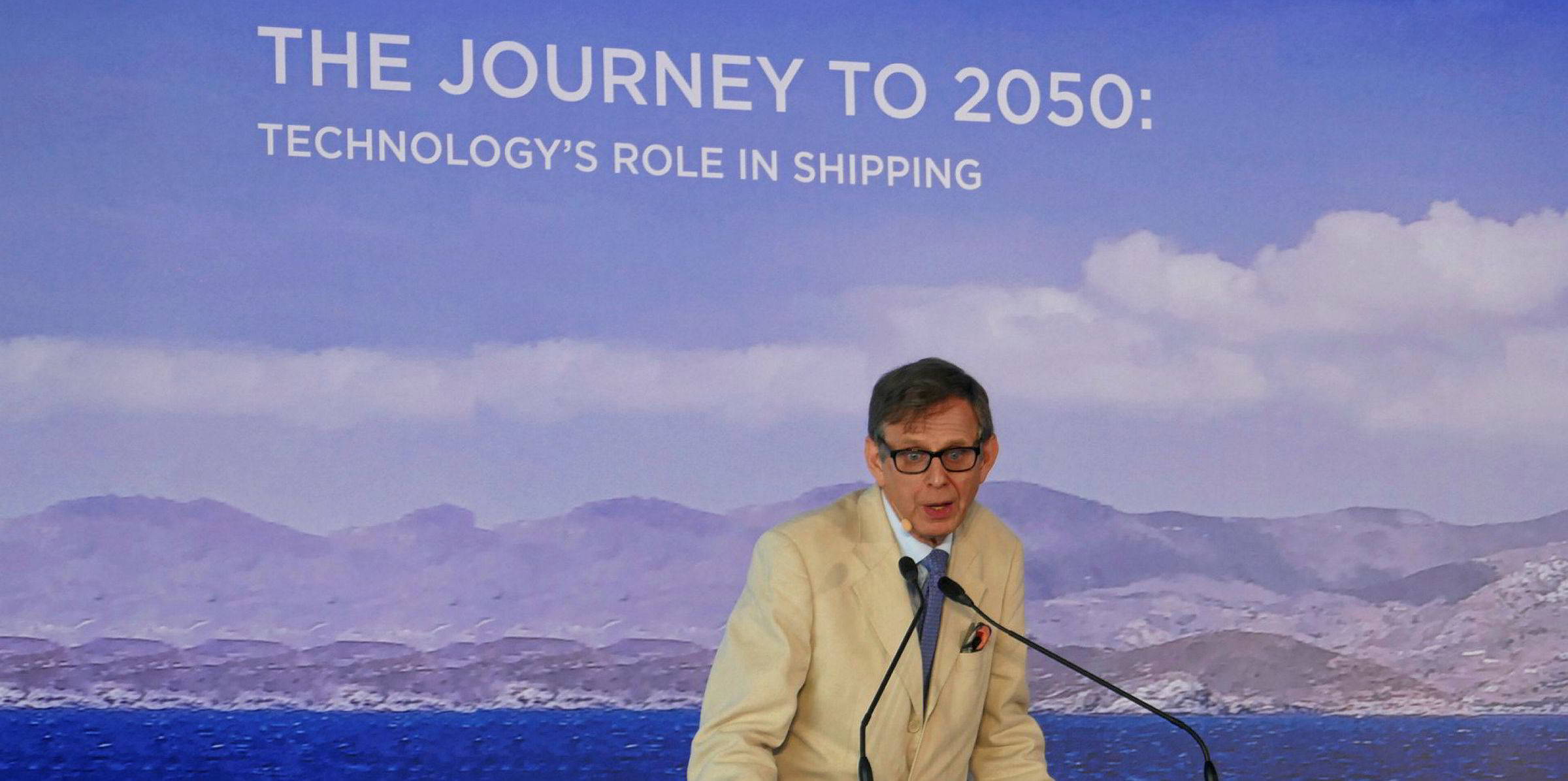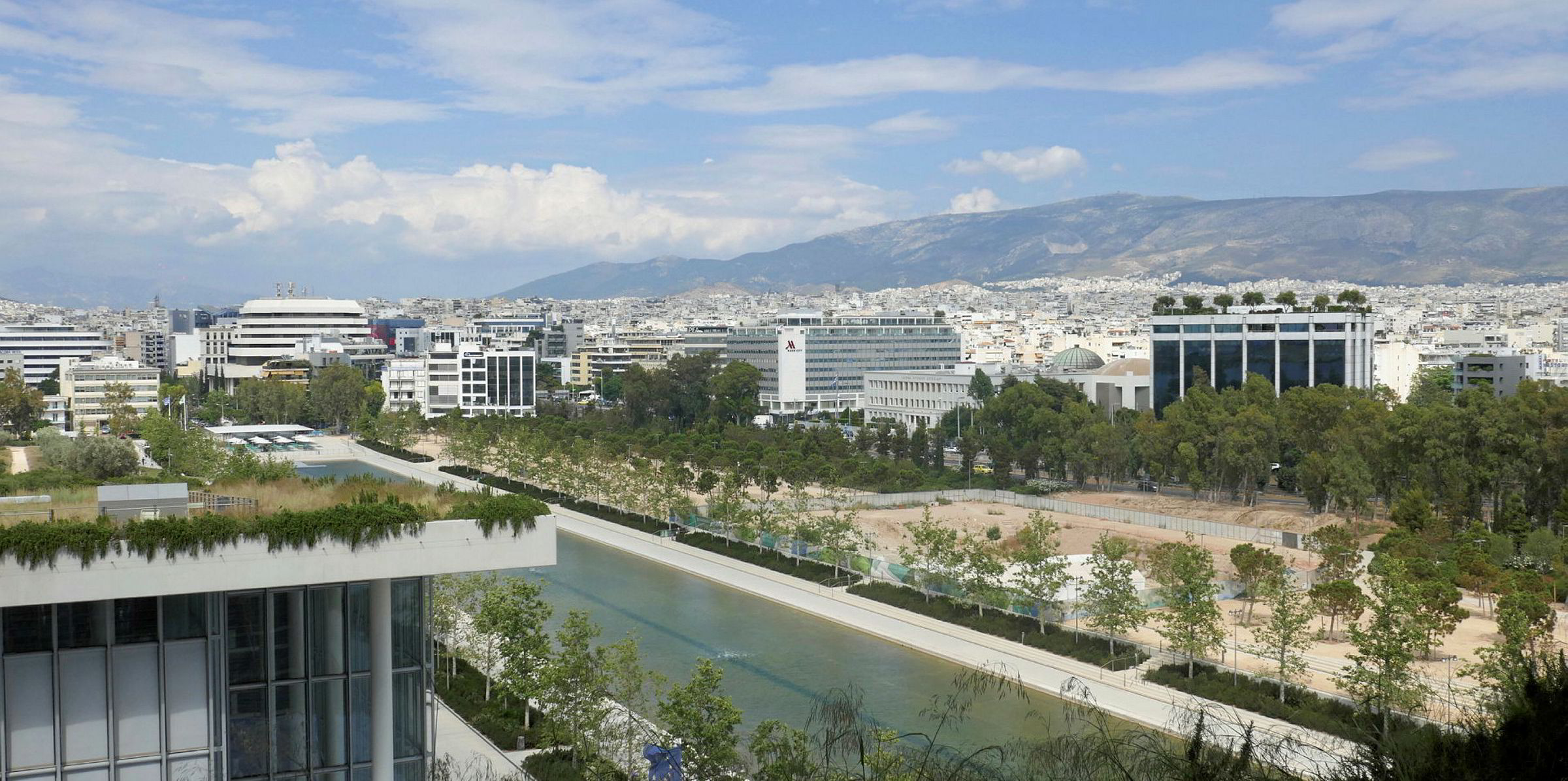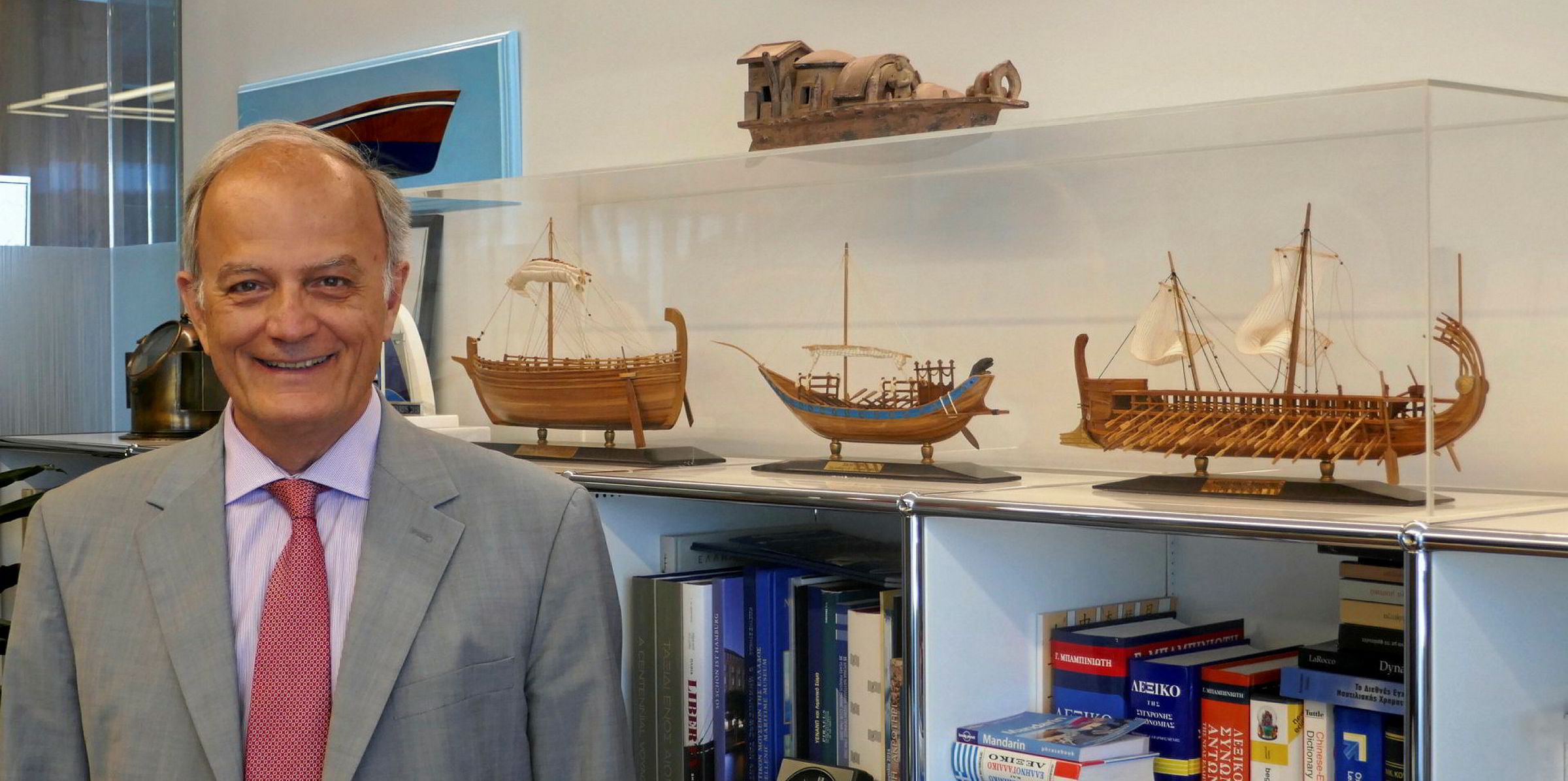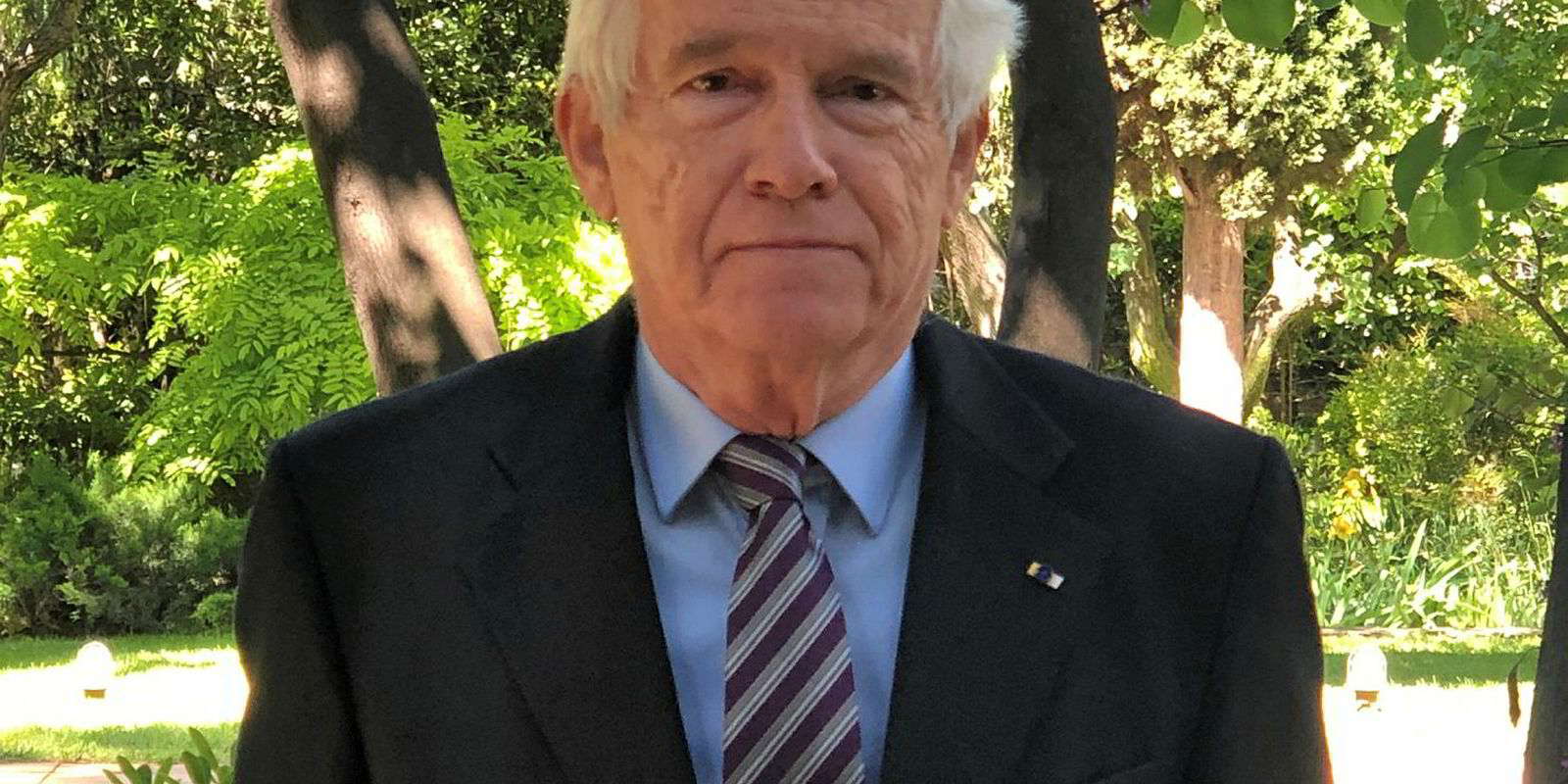The rooftop of the Stavros Niarchos Foundation Cultural Centre (SNFCC), a monumental recreation and educational building complex launched in Athens two years ago, offers some of the most magnificent views of the Greek capital’s Riviera.
Visitors crowding to enjoy the distant vista are probably unaware that the square mile of office buildings immediately around them represents the highest concentration of oceangoing commercial shipping ownership in the world.
Legendary names such as Tsakos, Onassis, Constantakopoulos and Palios have set up offices in the area. It is a sign of Greek shipping’s rude health that their footprint is still expanding. The Angelicoussis Shipping Group and Diamantis Diamantides, for instance, have moved into gleaming new headquarters there over the past two years.
New buildings on land are underpinned by newbuildings on the water, particularly LNG carriers. Greek owners have ordered more than 40 such newbuildings at South Korean yards since early 2018. This represents a staggering investment of nearly $8bn, according to TradeWinds’ calculations.
'Major LNG power'
“Greece has suddenly become a major LNG power,” Angelicoussis Shipping Group managing director John Platsidakis says.
Greeks have also lost nothing of their edge in their traditional markets.
Capital Maritime, Thenamaris, Onassis and Evalend Shipping were the first to jump on the market opportunities offered by Al-Iraqia Shipping Services & Oil Trading (AISSOT), the tanker venture set up by the Iraqi state about two years ago. Greek owners have provided almost all ships that AISSOT is currently operating on time charters or in bareboat deals.

In the secondhand market, the drive of Greeks towards younger tonnage continues unabated. The tonnage that Greeks have been buying this year is on average 4.5 years younger than the tonnage they sold, according to TradeWinds’ calculations based on confirmed transactions up to the end of May.
Athens shipbroker Allied Research estimates that Greeks spent $1.42bn on buying 104 vessels in the first five months of the year, compared to the $788m they raised from selling 72 ships.
However, sale-and-purchase activity in capesize bulkers has been minimal. A dam collapse in Brazil, which curbed iron ore exports out of that country and led to a downturn in freight rates, curbed buying appetite. Greeks scrapped seven capesizes between January and May but acquired just one. Nikolaos Vafias, a renowned countercyclical asset trader, was credited with that deal, in a move that may signal a wider change of sentiment.
Opposing camps
The uncertain state of the dry bulk market is far from the only challenge Greek shipping is facing. Global regulation, such as the 0.5% sulphur cap on bunkers that will come into force on 1 January 2020, poses a much more fundamental one.
The issue of scrubbers has split the Greek scene into opposing camps. Large-scale owners, such as Petros Pappas and George Economou, have been aggressively playing the scrubber card, with the two having pledged to invest more than $450m in the technology between them.
Such moves have caused an outcry among smaller players, who fear their ships might be left without bunkers or without charterers come the start of next year.
The Union of Greek Shipowners (UGS) has thrown its weight behind the latter. The exemption of scrubbers from the sulphur cap is “misguided” and leads to a “distorted, two-tier market” fraught with “impermissible conflicts of interest”, UGS president Theodore Veniamis said at a conference on 5 June.
“Shipping functions collectively and responsibly in the interests of the many,” he said. “It can’t pay attention to investment choices made by certain colleagues.”
Proposals to cut greenhouse gas emissions from shipping through slow-steaming cause similar divisions. Some Greek shipowners have forged an unusual alliance with green groups to push that proposal onto the agenda. That initiative has also drawn a sharp rebuke from Veniamis, who said owners should move through established channels, such as the UGS, instead.
Bank squeeze
Financing is also tricky. Stock markets have largely turned their backs on shipping firms, even to blue-chip ones boasting impeccable records like Tsakos Energy Navigation (TEN), which has never missed a dividend payment while its fleet expanded from just four ships to more than 70.
“The size of our company has grown very similarly to that of an internet start-up,” TEN chief executive Nikolas Tsakos told shareholders in Athens last month. “I just wished our share price had the same results but there’s always hope.”
Greek and European lenders — long reliable allies of Greek shipping — are suddenly becoming uncomfortable bedfellows. Small owners missing debt payments have seen vessels and private homes put up on electronic auctions in bank-driven forced sales.

Greek banks’ shipping departments, traditionally close to owners, have often little power to prevent such sales. They are being overruled by powerful debt-recovery units set up with the task to clean up balance sheets.
Even though lending by local lenders rose slightly in 2018, for the first time in four years, outstanding shipping loans stood at €7.92bn ($8.92bn) at the end of 2018 from their peak of €19.34bn in 2010.
There has been no credit crunch for big, established owners. Lenders such as DNB have refocused their efforts on winning them as clients, while shaking off smaller, less-reliable customers.
Win or lose, they're in it
Greek shipping would not deserve its reputation if it were not successfully tackling its challenges. This business focus on Greece shows that it is more likely to keep prospering than being hollowed out.
A European attack on its tax regime seems to have been successfully averted. The industry is becoming extrovert and flexible, forging new alliances to set the agenda in international policy issues. Chinese leasing has filled finance gaps. Innovative attempts are made to revive shipping traditions.
Maritime economics professor Martin Stopford argues that Greece’s powers of resistance are built-in.
“Even if returns are lousy, even if markets are terrible, you can still make a business out of it,” he told a crowd of Greek shipping players at an ABS conference on the rooftop of the SNFCC on 4 June.
“There are not many fleets in the world today that have that sort of drive behind it.”






